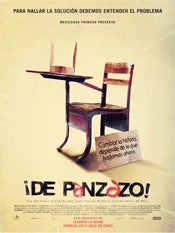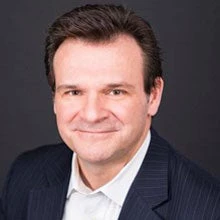 In the award-winning documentary, Waiting for Superman, alternatives to the traditional public school system are explored and debated. Following this tradition, the civil society group Mexicanos Primero recently released the documentary ¡De Panzazo! (‘barely passing’), directed by journalist Carlos Loret de Mola and documentary filmmaker Juan Carlos Rulfo. This documentary is an attempt to draw attention to the reality of the Mexican education system.
In the award-winning documentary, Waiting for Superman, alternatives to the traditional public school system are explored and debated. Following this tradition, the civil society group Mexicanos Primero recently released the documentary ¡De Panzazo! (‘barely passing’), directed by journalist Carlos Loret de Mola and documentary filmmaker Juan Carlos Rulfo. This documentary is an attempt to draw attention to the reality of the Mexican education system.
The documentary features interviews with key education stakeholders, deconstructs hard data, and offers poignant testimonials from students, parents and teachers.
The movie uses cinema to bring a message of the shortcomings of the public education system to a broader audience. It is already having an impact, through its interactive website and the public debate it has generated. In Mexico City the film brought in $870,000 on its opening weekend, pulling off an impressive feat for a locally-produced documentary by outperforming several Oscar contenders.
Thanks to Mexicanos Primero and Cinepolis, we were given the opportunity to screen the film at the World Bank in an event co-sponsored with PREAL. One of the highlights of the film is its call for accountability, accountability promoted by using the widely available student outcomes data and teacher evaluations to address improving education system quality. While radical approaches may be needed to transform education systems, there are approaches, already in practice, that can be made more effective. These may include giving public schools adequate resources, granting them the right to make appropriate decisions, and holding them accountable through the publication of school results. These methods have has been used in countries around the world since the mid-1960s. The school autonomy approach has been tried, evaluated, and proven successful at achieving a range of education goals in many different contexts.
Much has been written already about the approach in the developing world, most notably the experiment tried in the early 1990s in El Salvador, evaluated by, among others, Emmanuel Jimenez and Yasuyuki Sawada, which was then copied and validated in a number of countries, including Guatemala, Honduras and Nicaragua. Such results are not limited to developing countries. One of the most careful and long-term studies of the impact of school accountability was published recently in the Journal of Political Economy by Damon Clark. He found that the British reform that allowed public high schools to opt out of local authority control and become autonomous schools funded directly by the central government led to large achievement gains at schools benefiting from the reform.
Bulgaria decentralized its school system giving principals the power to hire and fire, control budgets, in short make all the important decisions at the school level. This strong version of school autonomy is being expanded with additional accountability measures, namely the use of assessment results and increased participation by parents on the school council.
Mexico, through more limited school autonomy programs, has been able to improve schooling outcomes for students in the poorest and most indigenous schools in the country. Mexico also has a well-developed student assessment system with all students in all schools being tested every year; the results are public and widely available. Recently, Mexico also began to evaluate teachers.
According to ¡De Panzazo!, to strengthen education system quality, there must be better use of relevant information to hold the system accountable. The World Bank and PREAL screening was followed by a panel discussion facilitated by Robin Horn, World Bank Education Sector Manager and included Jeffrey Puryear, Vice President, Social Policy at the Inter-American Dialogue and myself. The panel discussion prompted a lively audience discussion on the need for reform, the need to address political economy issues (eg, unions), the need for civil society pressure to demand change, and the need to address teacher quality.
Click here for information about the event. Also, follow the Education twitter account for updates on future events.


Join the Conversation